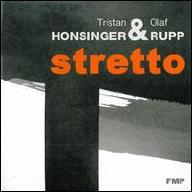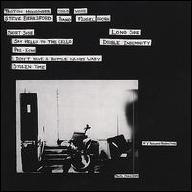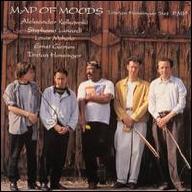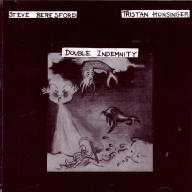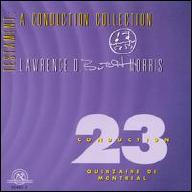His optimum is as a solo cello improviser, and on the album A Camels Kiss, he extracts a dense and unworldly combination of jazz techniques, text-less vocalizing, total free improvisation, hints at J.S. Bach, quotes from Kurt Weill, and flirts with the fantasia of gypsy folk music. All with an astounding technique that surpasses many of the greatest of contemporary music interpreters. Often compared to the late Tom Cora, another outlandish jazz cellist whose love for folk and classical music inflected his improvisations. The range of emotions that is covered in a piece by Tristan Honsinger is striking in that it is very accessible for so-called avant-garde music. In the '80s, he recorded for the prestigious FMP label and in the '90s, numerous companies, including Winter and Winter, I.C.P., and legendary jazz archivists Hat Hut from Switzerland. Performing with the Instant Composers Pool, the group was highlighted at many European jazz festivals if not only for their astounding improvisational musicianship, but for the theatrical antics -- spectacles even more unpredictable than there schizophrenic jazz structures. All written in real-time of course. ~ Sylvie Harrison, Rovi
Tristan Honsinger
from Burlington, VT
October 23, 1949 (age 76)
Biography
Born in New England, the cellist Tristan Honsinger studied at the Peabody Conservatory in Baltimore. By the '70s, the Trans-American had moved to Amsterdam and formed the Instant Composers Pool with drummer Han Bennink and radical pianist Misha Mengelberg. With this avant-jazz group, his music transcended the classical conservatory background he had and he began to incorporate wild, free improvisation, jazz, and European folk music into his cannon, not to mention a kinship with Bertolt Brecht theatre, which would put an edge on performances and recordings that take on experimental strategies, some of which include what could be considered violent attacks on the instrument. Here he would find a kinship with Cecil Taylor, who also liked to make small explosions inside his piano. Honsinger worked with the great pianist in Europe, with Steve Lacy, Lol Coxhill, and Louis Moholo among them in the European free jazz community -- which, in the '70s, was thriving as far away as Florence, Italy. Honsinger found a home there in 1978 for a number of years. Working with the more extreme experimental Gruppo Du Improvisazione Nuovo Consonanza (Improvisational Group for New Consonance) members Giancarlo Schiaffini and Gianluigi Trovesi. Having worked with many groups and ad hoc improvisation setting through the years, interests in theatre, dance, and opera influenced his performances considerably.
Top Tracks
Albums
Videos
Close


